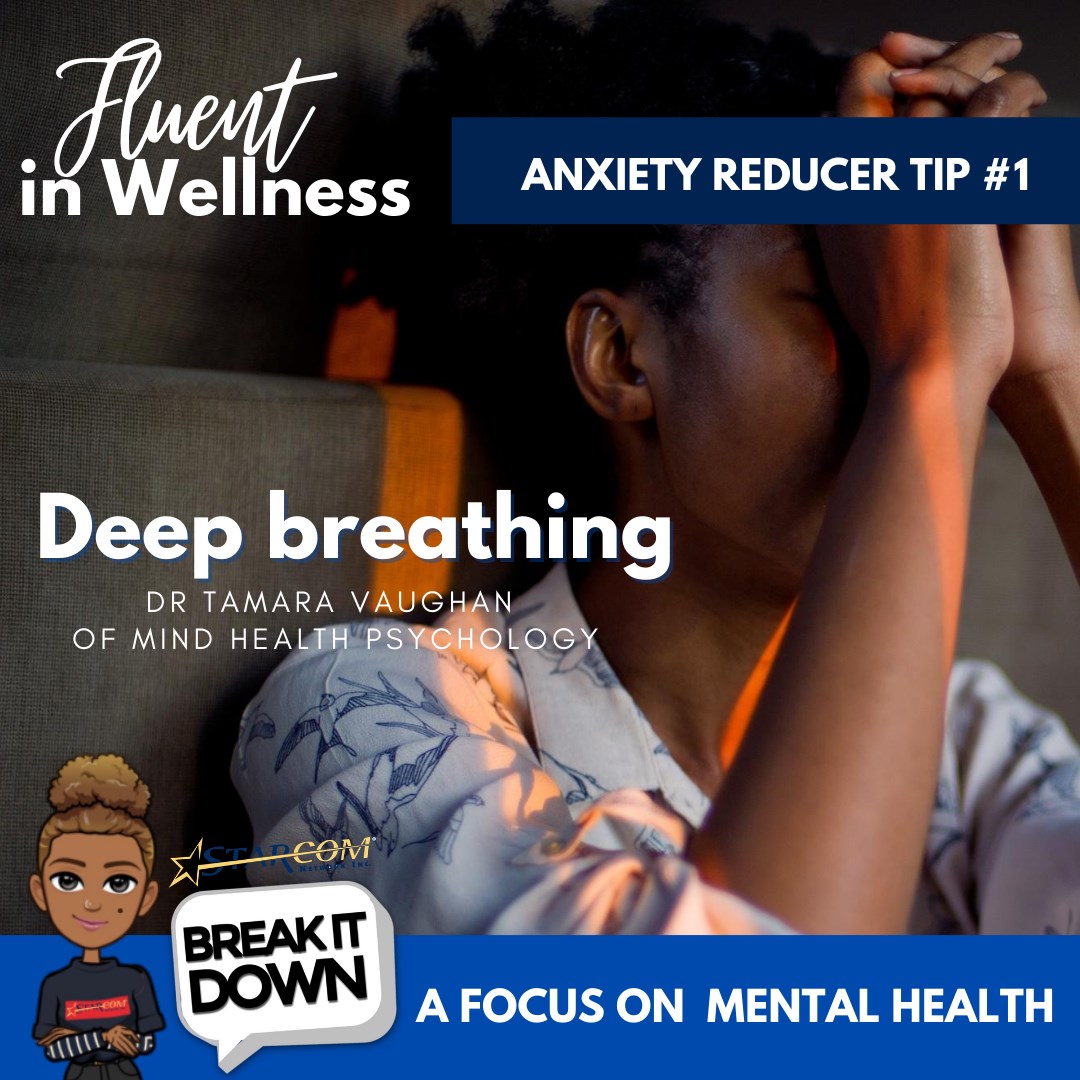Today on Break it Down, we explore deep breathing with Chartered Counselling Psychologist Dr Tamara Vaughan of Mind Health Psychology;
Deep breathing
The idea around deep breathing exercises is that they help to activate the ‘parasympathetic nervous system’ – this is also known as the ‘rest and digest system’ (i.e. the opposite of the fight or flight) and helps to activate a sense of calm and relaxation within our body. There are a couple of exercises that are helpful:
a. Breathe in for 4, hold for 4, out for 4
b. Breathe in for 4 out for 6
Breaths out should be low and long like you’re breathing out through a straw.
I often recommend to people that they practice deep breathing for 1-2 minutes every day. When you are new to this practice, it may be best to practice and at a time when you’re feeling relatively calm rather than practicing for the first time when you’re feeling very anxious (i.e. you wouldn’t want to learn to swim in the middle of a storm).
NOTE:
• This may cause you to feel a little light headed initially so practice while sitting down.
• If you have any heart or respiratory conditions, you may need to seek medical advice from your doctor first if you’re unsure whether this is appropriate for you.
Disclaimer: The information provided is advisory but should not replace any further specialist mental health or medical input, should you need this.
Be sure to read Break it Down: What is Anxiety & How to Reduce it? before listening to this practice guide:

















